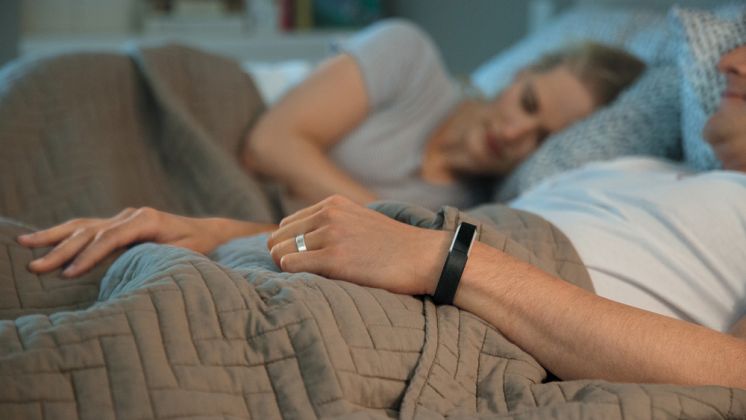Get A Better Night’s Rest With Fitbit’s New Sleep Features
How to use Fitbit’s latest updates to improve your snooze

The morning after the first night you track your sleep is an unexpectedly exciting affair. Poring over your sleep stats at breakfast you proudly boast of the amount of deep sleep you managed, or indeed point to a lack of such sleep as the reason you need a second cup of coffee.
After a few days of tracking, however, many people simply stop checking their sleep record. It’s a problem common to many features of fitness trackers in general: once you have all this information, what do you do with it?
With sleep it can be particularly tricky to take action, because trying to force yourself to sleep more is often a recipe for lying awake in bed for hours becoming increasingly stressed that you haven’t manage to nod off yet.
RECOMMENDED: How To Sleep Better
Fitbit is trying to solve this problem first by doubling down on the amount information its trackers provide about your sleep, then by using that information to coach you towards a better night’s rest. This is done using the heart rate monitor and accelerometer in Fitbit’s Alta HR, Charge 2 and Blaze models.
The first of two new sleep features is called Sleep Stages. This aims to provide more detail about your sleep by breaking each night down into four different phases – light, deep and REM sleep, and time spent awake – which are plotted on a graph to show how you cycle through them.
In the Fitbit app you can also see how much time you spent in each phase of sleep and how that compares to other people of your age and sex with the Benchmarks feature. The Benchmarks are provided as a range, so for a 26-year-old man the averages break down as 15-25% REM sleep, 40-60% light sleep, 12-23% deep sleep and 5-20% awake.
Get the Coach Newsletter
Sign up for workout ideas, training advice, reviews of the latest gear and more.
All the information provided by Sleep Stages is also interpreted by the second new feature on Fitbit trackers – Sleep Insights. As well as sleep data, this tool takes into account all information logged in the Fitbit app, including activity and diet. This allows it to identify patterns in your sleep that you can use to actually improve your rest.
For example, the feature could discover that on the days you go for a run you sleep better than when you don’t, or how a change in diet results in less deep sleep. You can then use that info to adjust your daytime habits to ensure more success at night. As well as this personalised advice, Sleep Insights will also provide generic tips for getting better sleep.
The new features are a welcome attempt by Fitbit to help users translate the information they collect about themselves into lifestyle changes that yield positive results.

Nick Harris-Fry is a journalist who has been covering health and fitness since 2015. Nick is an avid runner, covering 70-110km a week, which gives him ample opportunity to test a wide range of running shoes and running gear. He is also the chief tester for fitness trackers and running watches, treadmills and exercise bikes, and workout headphones.
